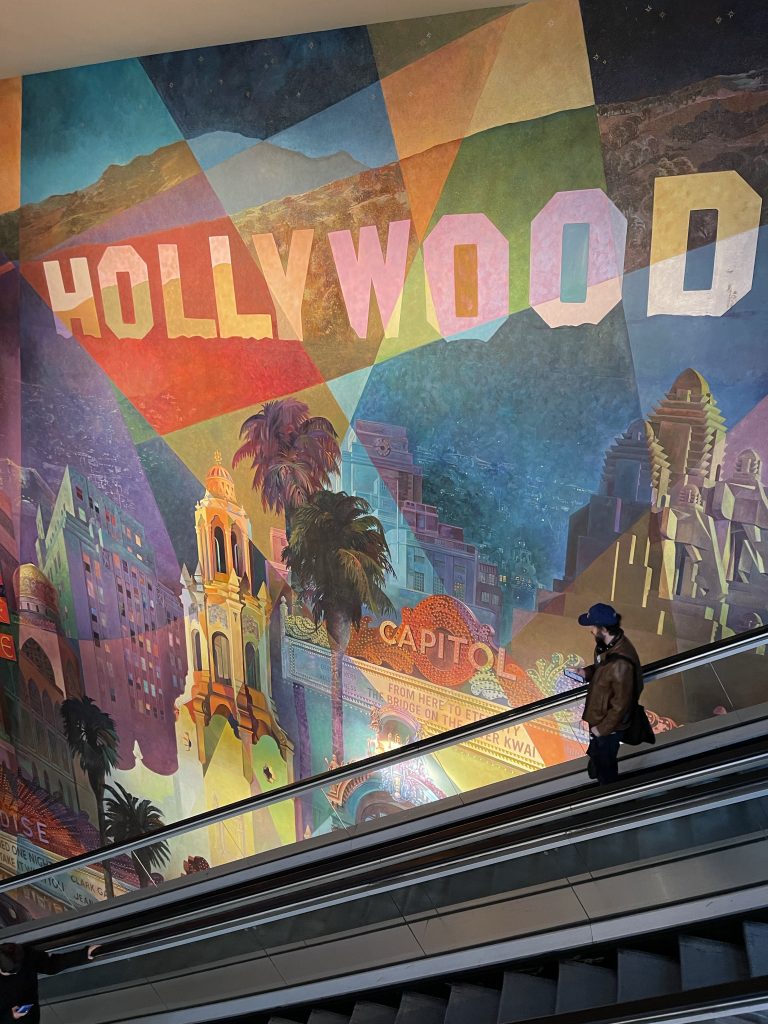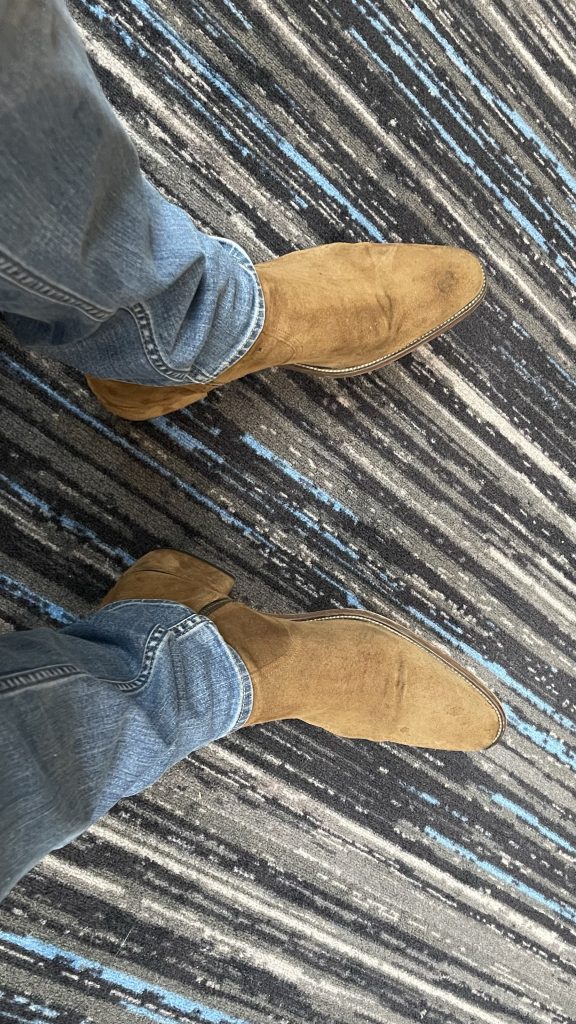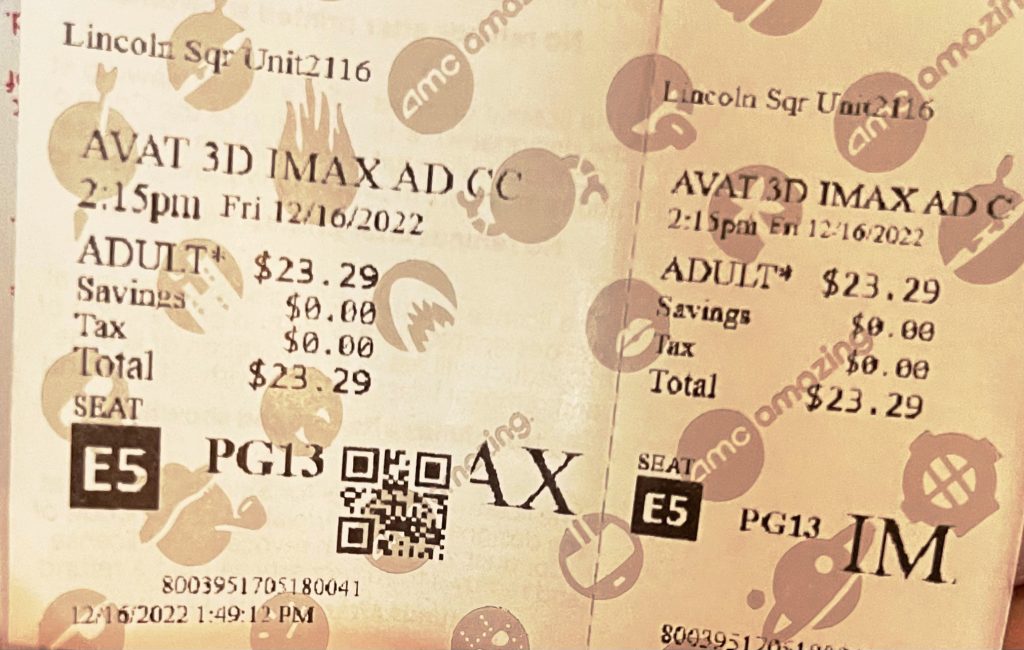The intro is confusingly written, but for our second podcast Sasha and I discussed HE’s top 20 films of ‘22…didn’t have time for all 30. Sasha was in central Colorado as we recorded; she’s currently in the vicinity of Topeka, Kansas.
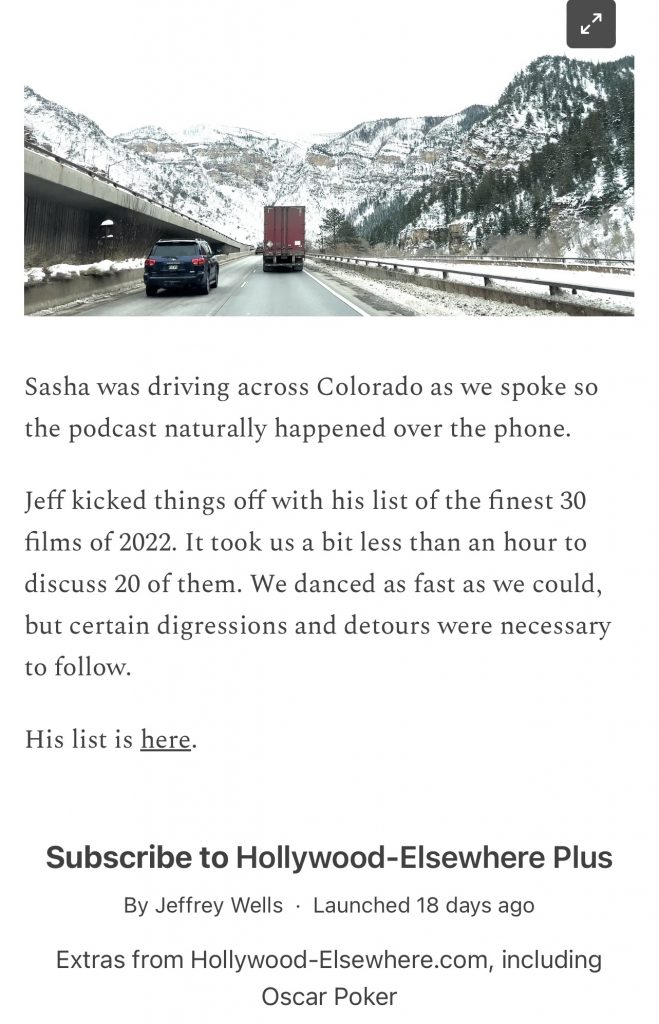
Roughly 14 years ago, give or take…
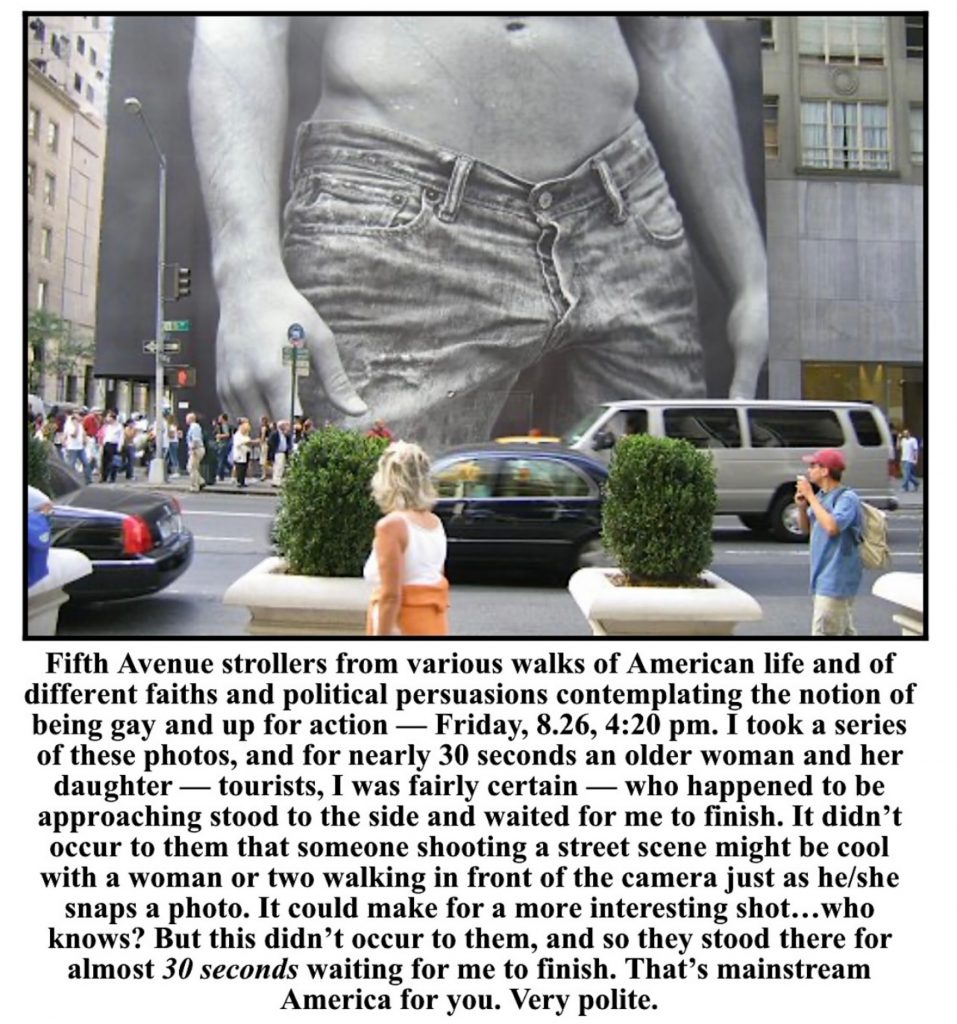
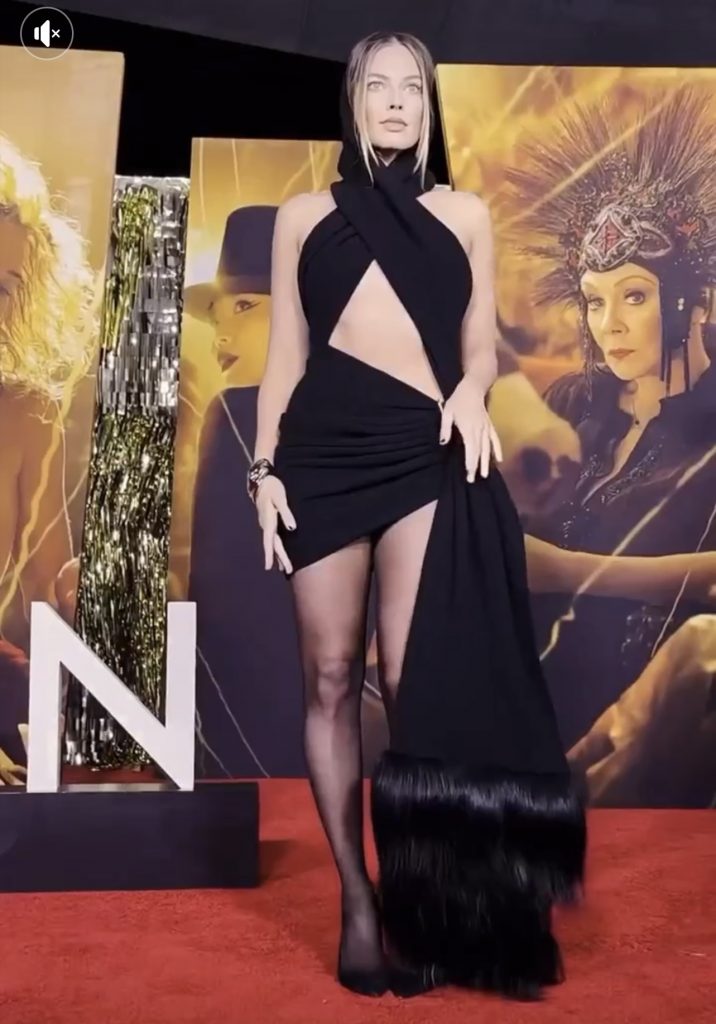
Highlighted by Variety, this bucolic Kramer vs. Kramer moment never appeared in the film:
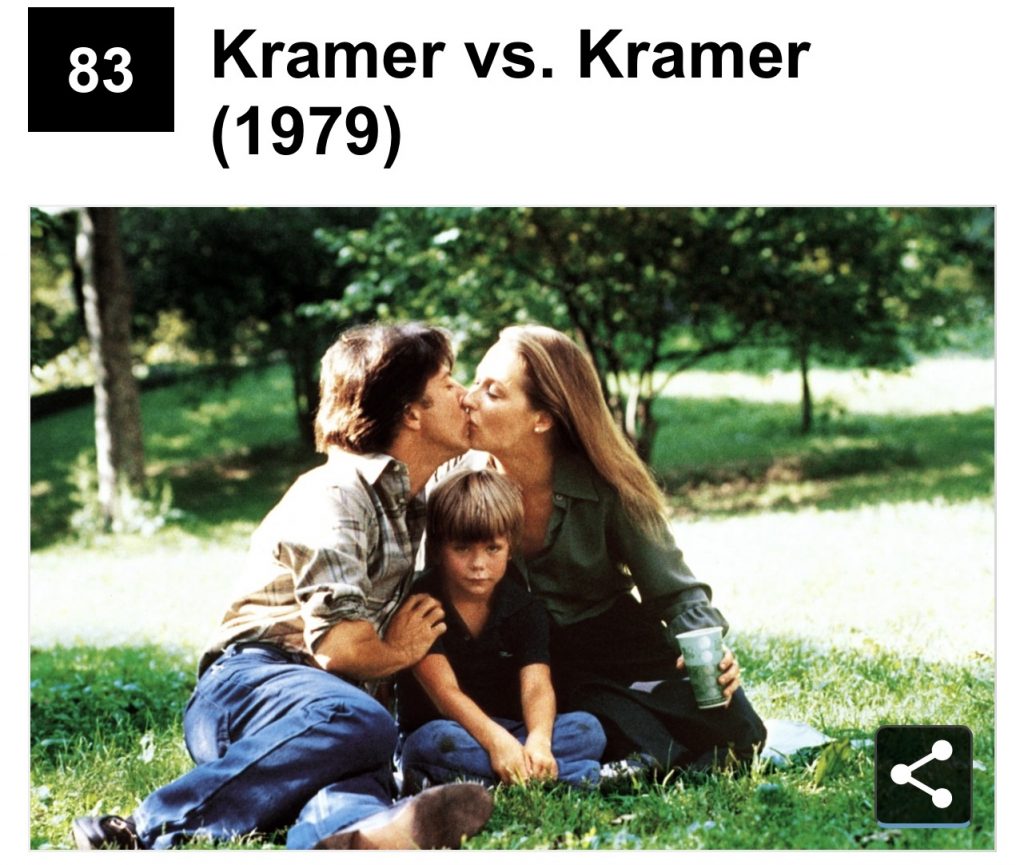
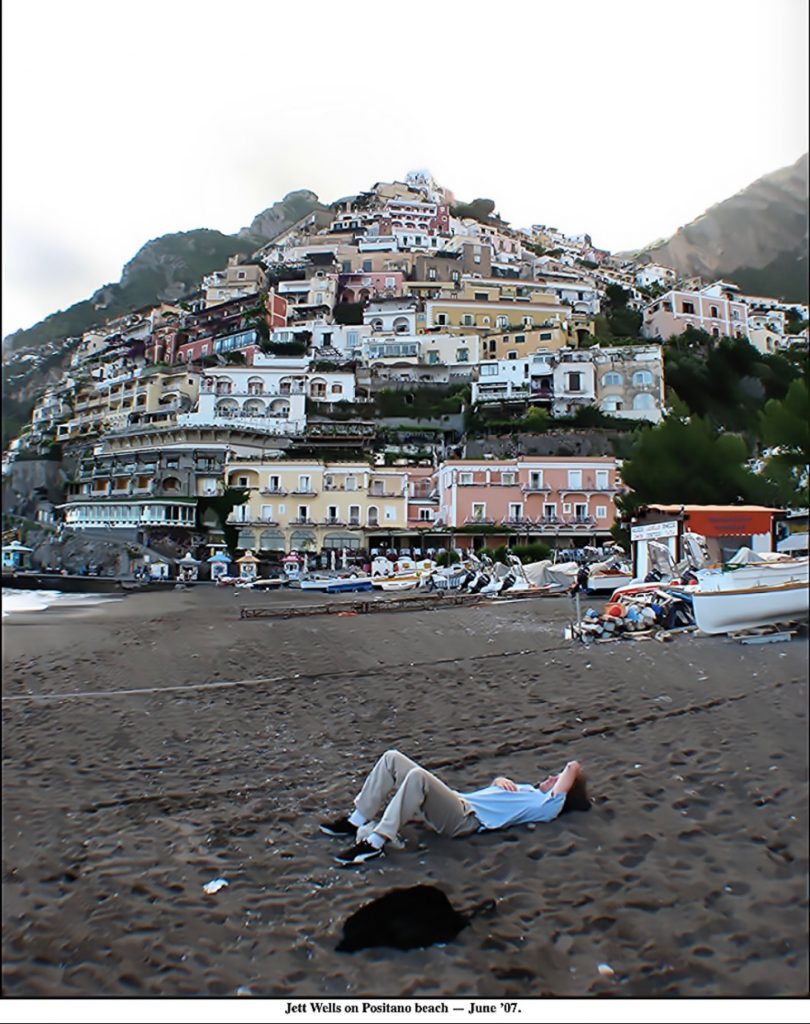
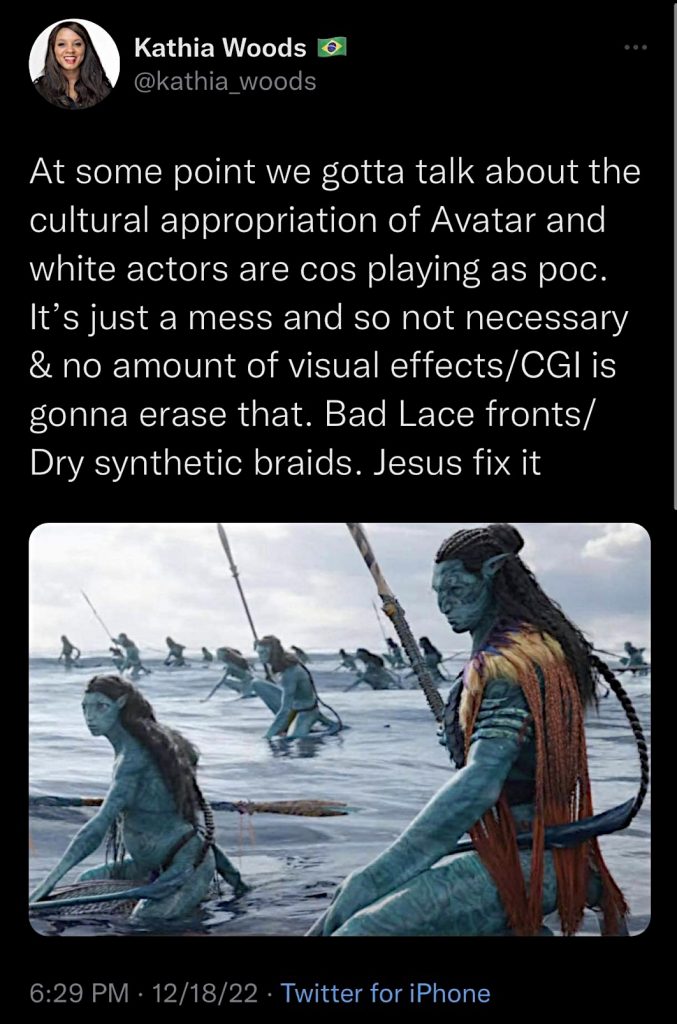
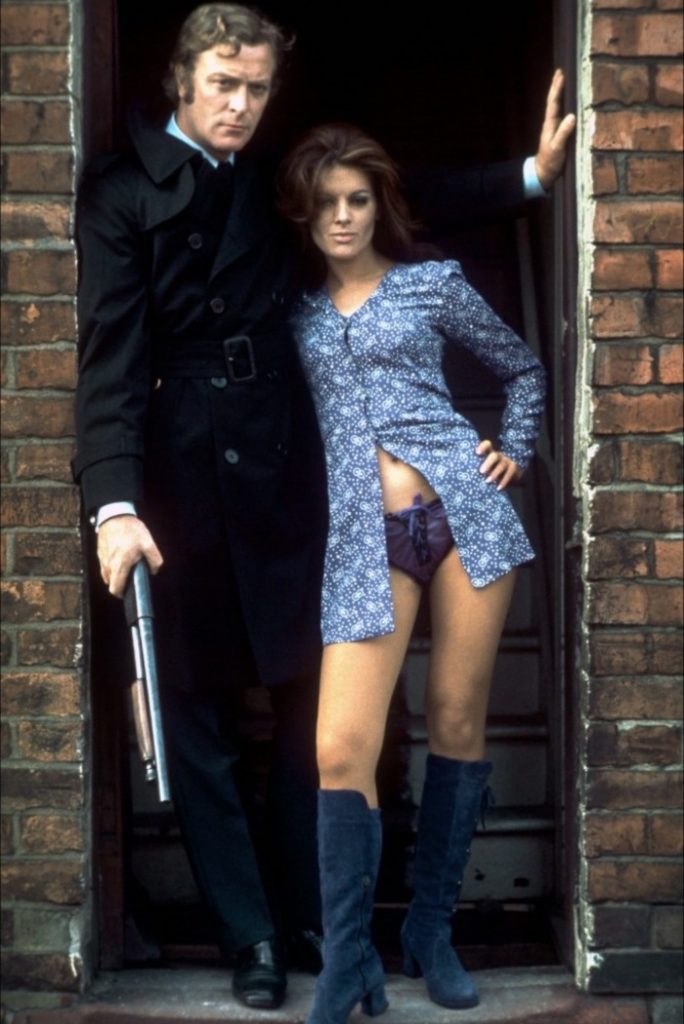
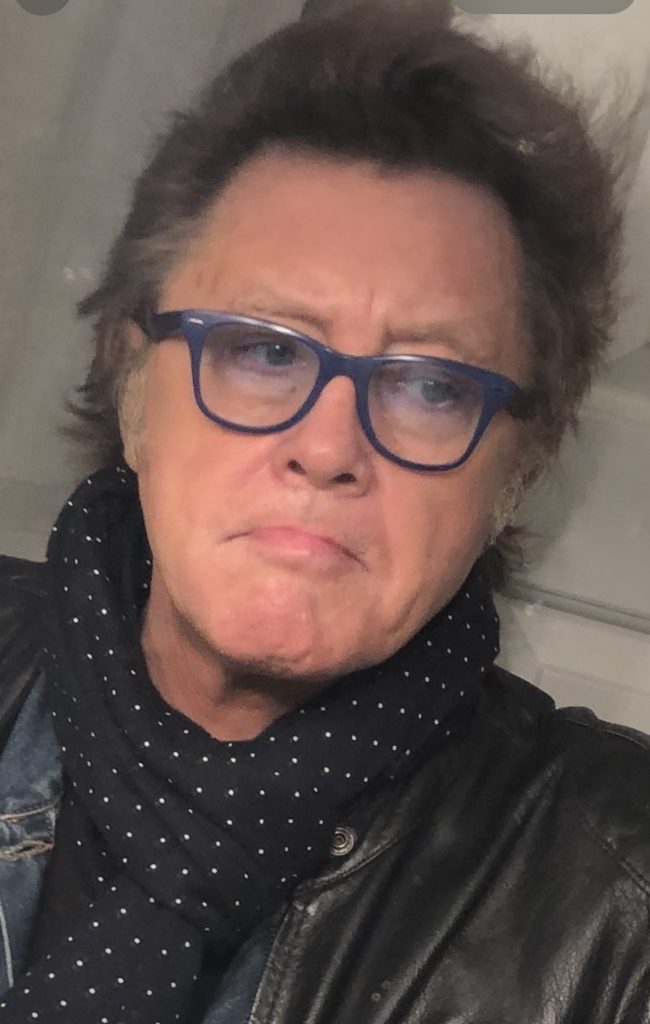
7:55 pm update: I forgot to include several ’22 films for my primo list — I’ll include them in Tuesday’s bigger, more definitive rundown.
The ones I forgot to mention are Bardo, The Batman, Thirteen Lives, Armageddon Time, Argentina 1985, Apollo 10 and 1/2, Navalny, God’s Country, Watcher and Palm Trees and Power Lines — 10 in all for a total of 29. Okay, if I add Till it’ll make an even 30.
Take that, Jeremy Fassler!
Earlier: Some of these 2022 films (boldfaced) are excellent. I’ll post an expanded rundown tomorrow with a few excerpts and rimshots, but here, for now, are 2022’s finest. Okay, it was a weak year.
Earlier this afternoon HE commenter Jeremy Fassler wrote “hey, man, all you do is piss on everything! If you hate movies so much why do you maintain HE?” Or something close to that.
Every year I come up with a list of least six or seven top-top tier films combined with 12 or 13 good to pretty good ones. This year’s tally came to 19.
Hey, Fassler — have you seen Close or Happening or Vengeance? Have you considered the possibility that your taste in films might be your own and that my preferences follow their own suit?
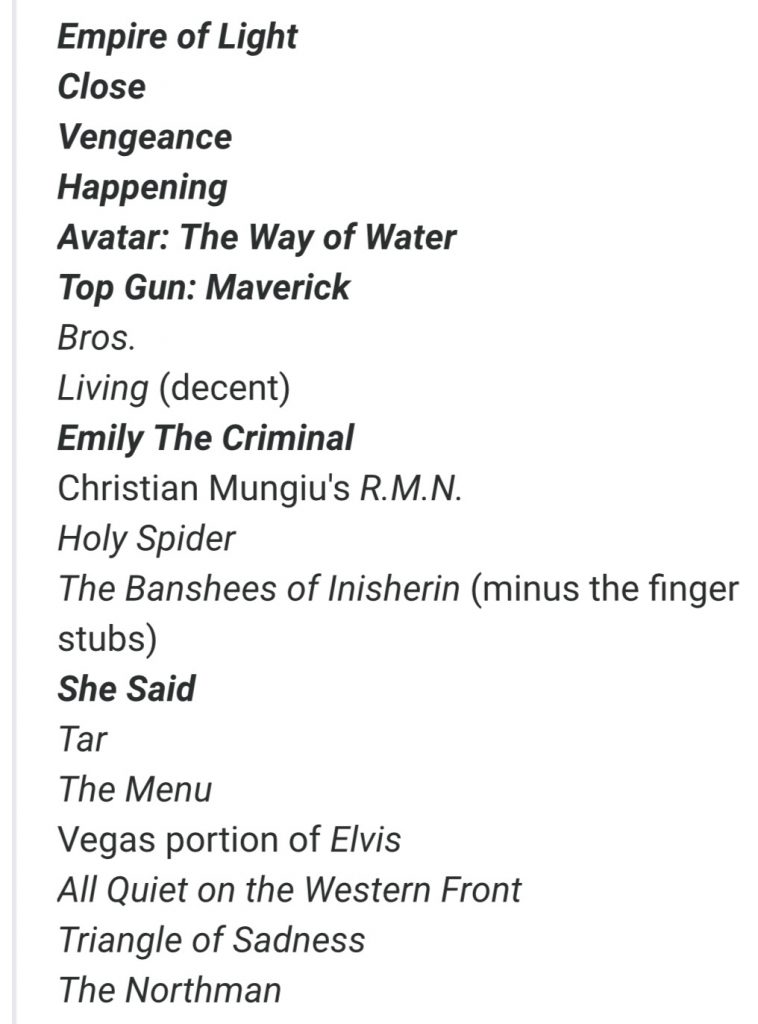
We’re basically talking about a p.r. move. The Elon Musk proxy would essentially be a facilitator, a smoother-over. He/she wouldn’t change the fact that Musk, Twitter’s enfant terrible CEO, wants to bring about the subjugation and, if possible, the ruination of the fanatical wokester left — a cause that in itself exudes a certain honor as wokesters aren’t just culturally suppressive Stalinists but Trotskyites. Alas, Musk has counter-balanced that horror by being impolitic and a blunderer.
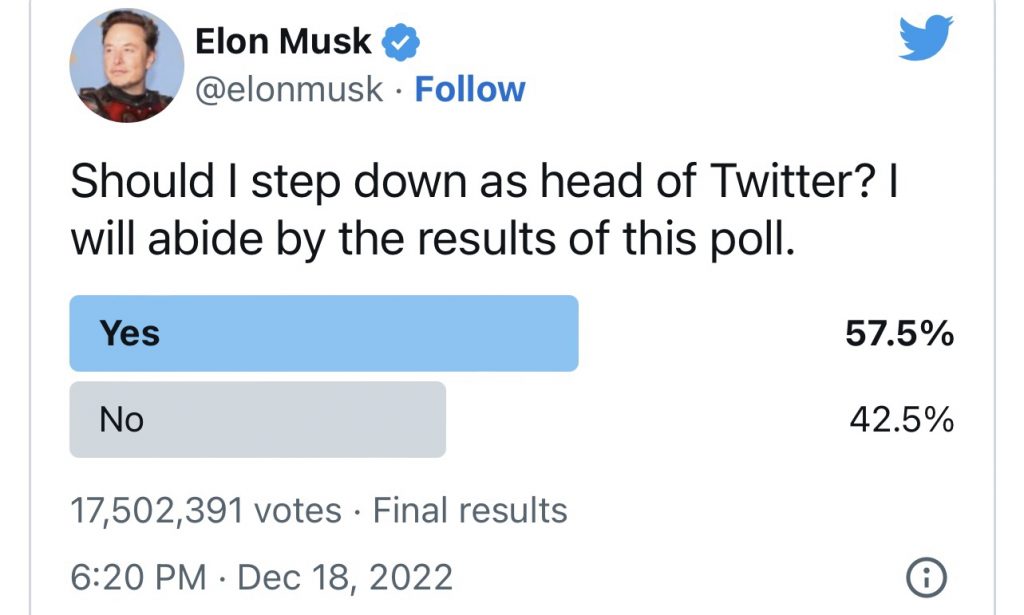
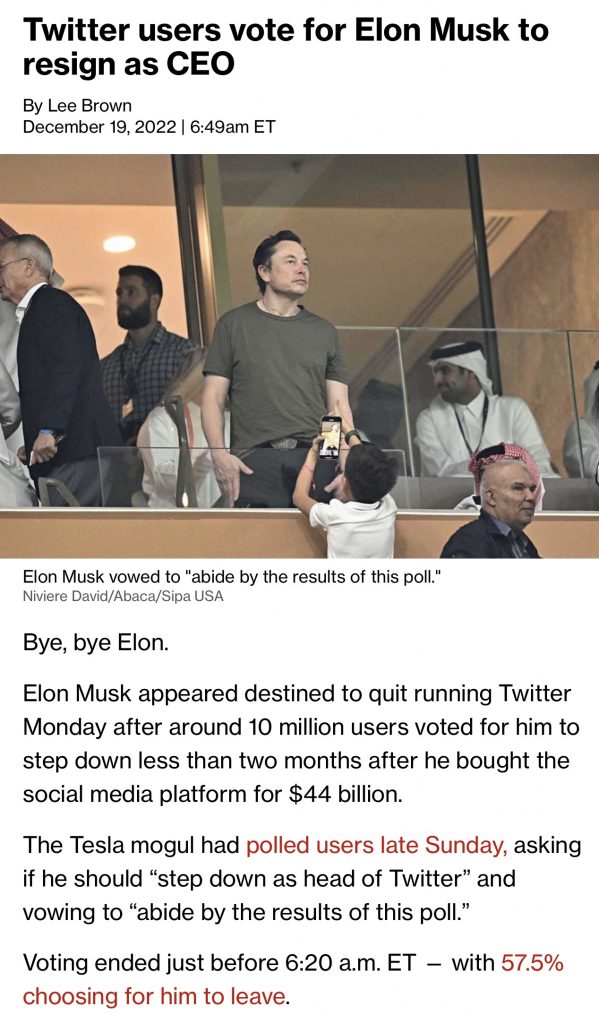
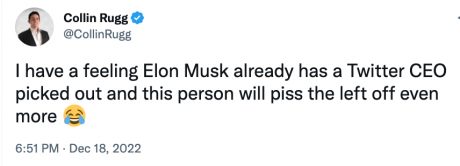

I watched Tar again a couple of nights ago. This time for the subtitles — every line clear and fine, no breathy muttering or whispers getting in the way. But this time I was bothered by Florian Hoffmeister’s occasionally under-lighted cinematography. I’d expected Todd Field’s film to look a tiny bit sharper or more vivid on the Sony OLED, and it wasn’t. Every shot seemed a shade too dim and subdued, at times even murky. That was it — my patience was at an end. No more reassessments .
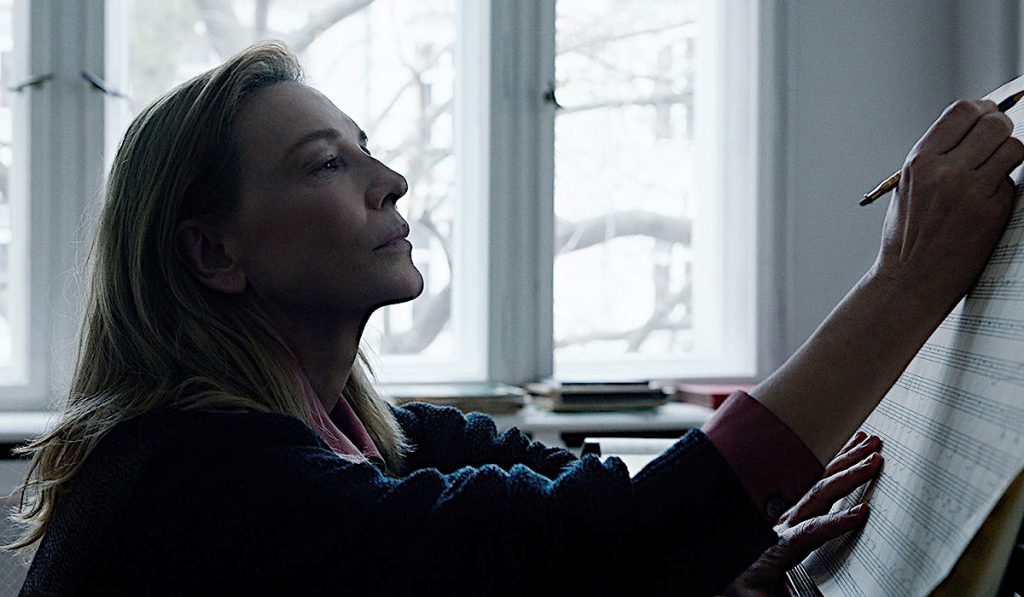
Ask any half-knowledgable film fan about a 15 year-old western called The Assassination of Jesse James By The Coward Robert Ford, and he/she will say “aces, a classic…an art western that put Andrew Dominik on the map.” But critics were divided back in ‘07, and one critic in particular, the grumpy Lou Lumenick of the New York Post, gave it a lousy one-and-a-half stars. I replied that within the critical community, trashing James was a form of blasphemy.
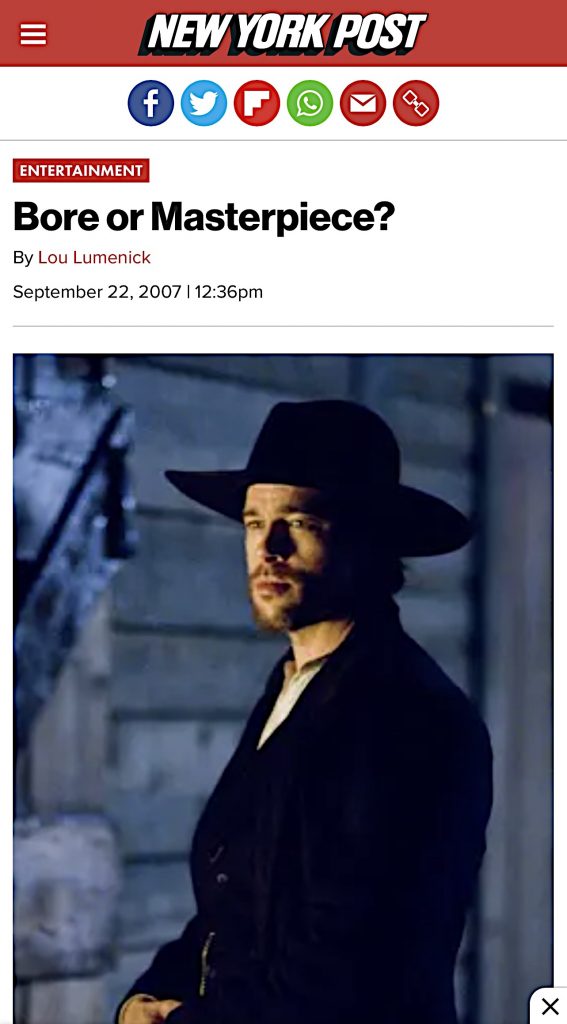
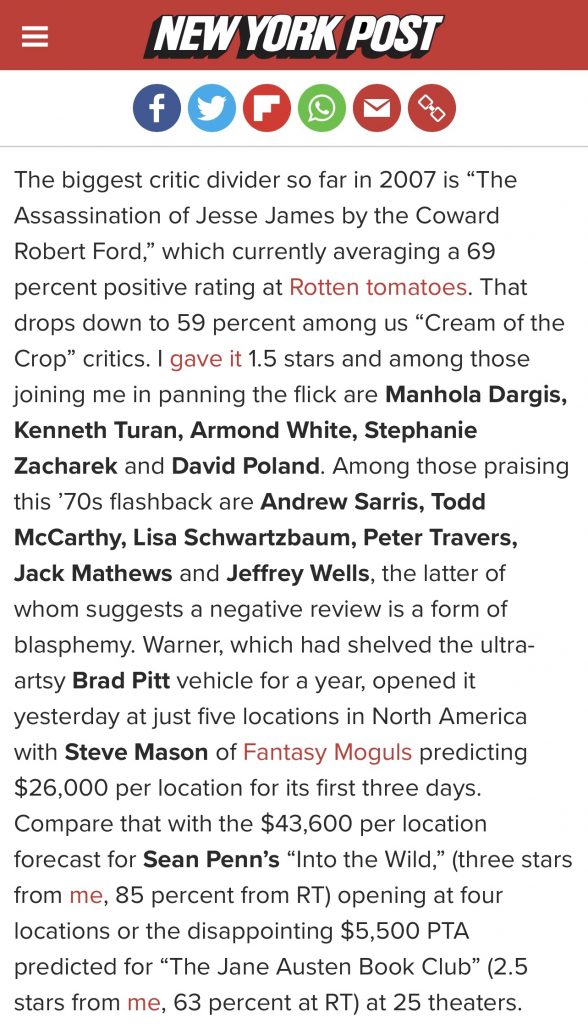
It took a few years for the smart set to recognize that 2007 was one of the greatest movie years of all time — right up there with 1939, 1962, 1971 and 1999.
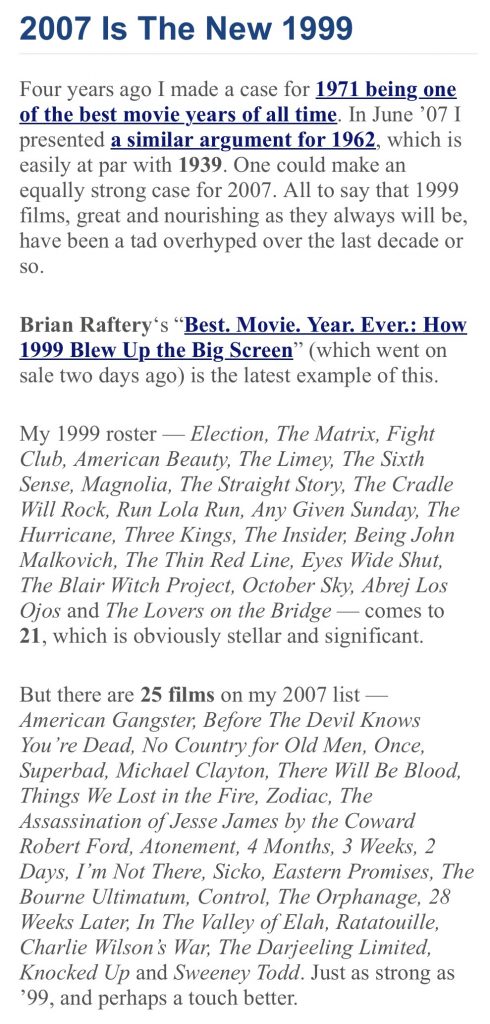
9:40 pm: I tweeted a reply to Zoe Rose Bryant as follows: “Hey, Zoë, I’m a straight white dude, okay, but Jordan Ruimy’s parents are North African so he doesn’t quite qualify. Oscar death to EEAAO!”
Bryant, whose award-season sentiments are basically or mostly “everything is wonderful…every film, every performance…love it all!”…Bryant has bravely blocked me so my tweet doesn’t exist on Twitter. So here it is.
What Zoe meant, in part, is that despite his ethnic heritage, Jordan sounds like a “white dude.” He has that “white dude” attitude. Meaning that he doesn’t seem to understand movies as fully as she does.
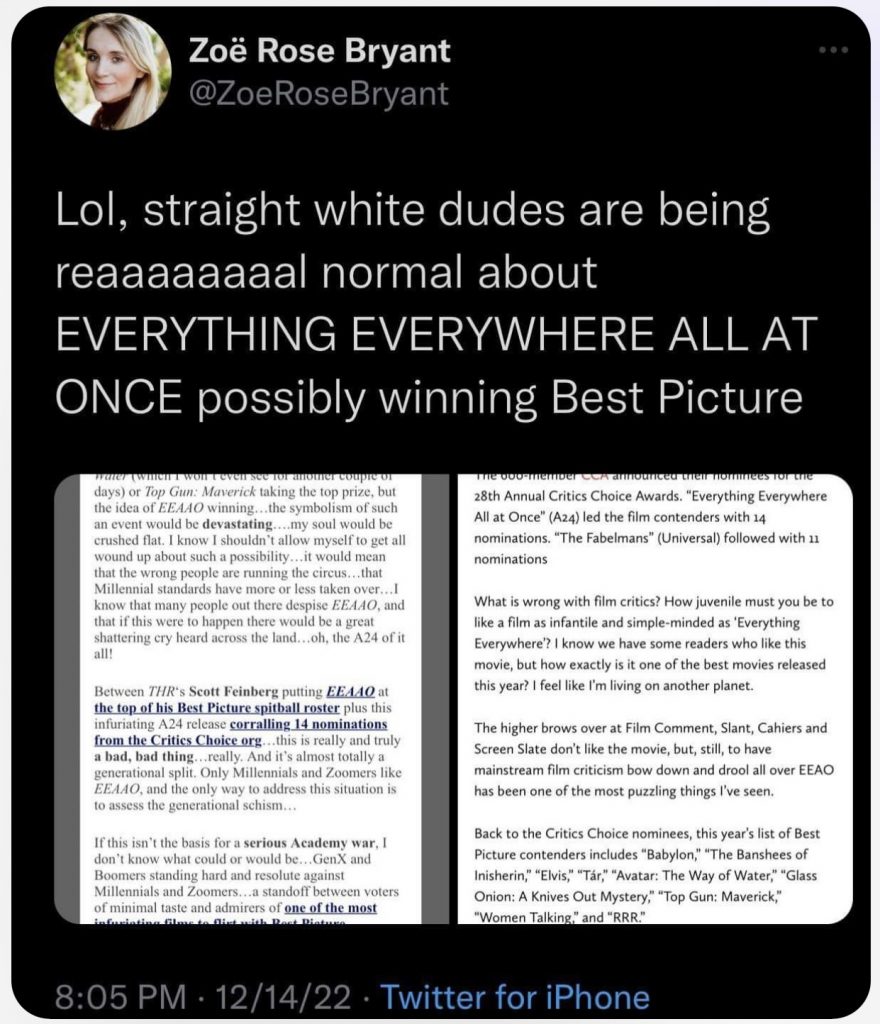

Pre-Elon Musk Twitter may not have done the right journalistic thing by suppressing the sad, pathetic saga of Hunter Biden during the ‘20 ejection, but I’m glad they did it regardless. Because the Hunter Biden scandal is nothing, as I explained early last September:
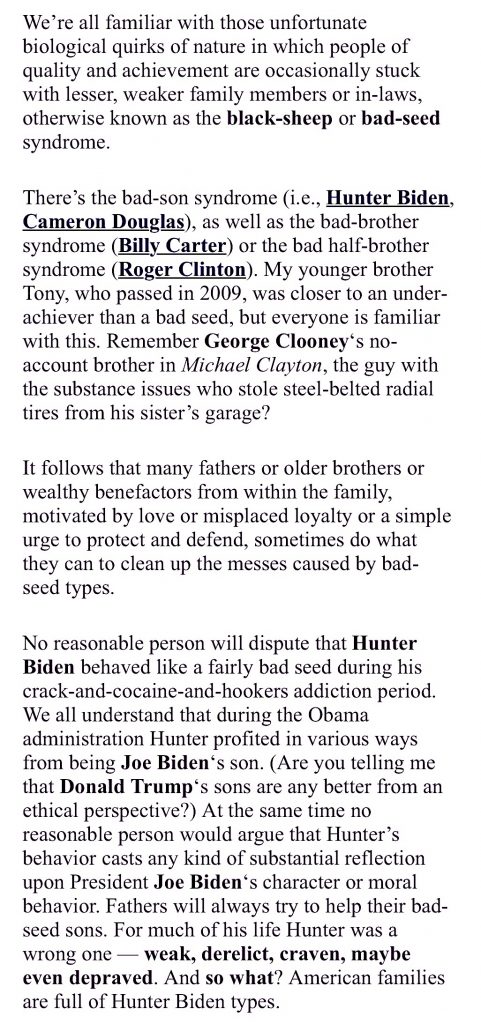
Before yesterday’s 2:15 pm Lincoln Square screening of Avatar 2 they showed the trailer for James Gunn’s Guardians of the Galaxy, Vol. 3 (Disney, 5.5.23). My spirit sank — another Marvel attitude goofball fan–service comedy in space. The patience of Chris Pratt’s Peter Quill once again tried by Dave Bautista’s Drax the Destroyer…really bad for the soul, man. Pit of depression.
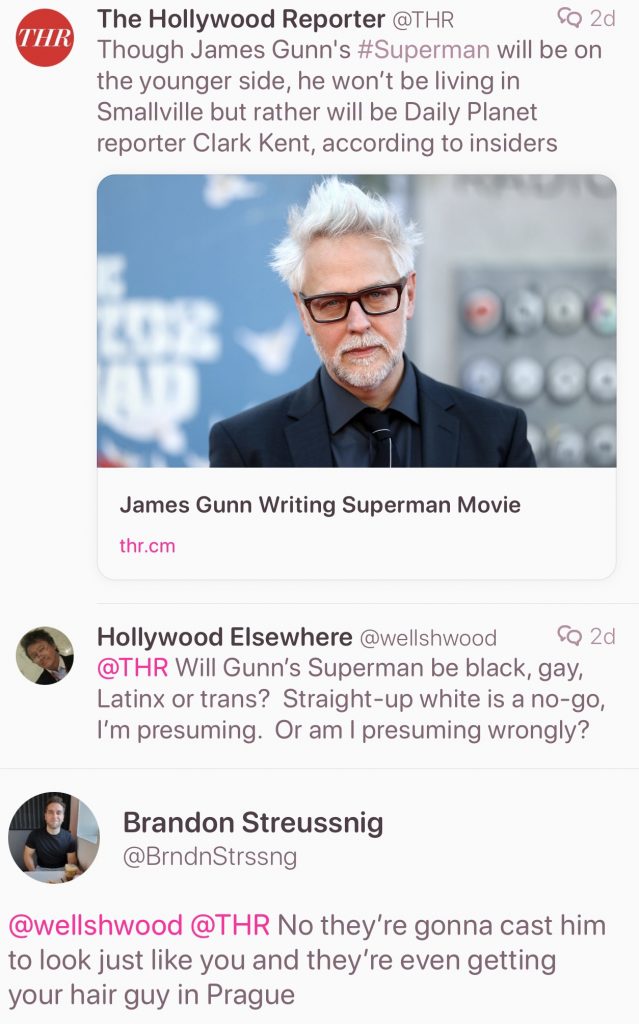
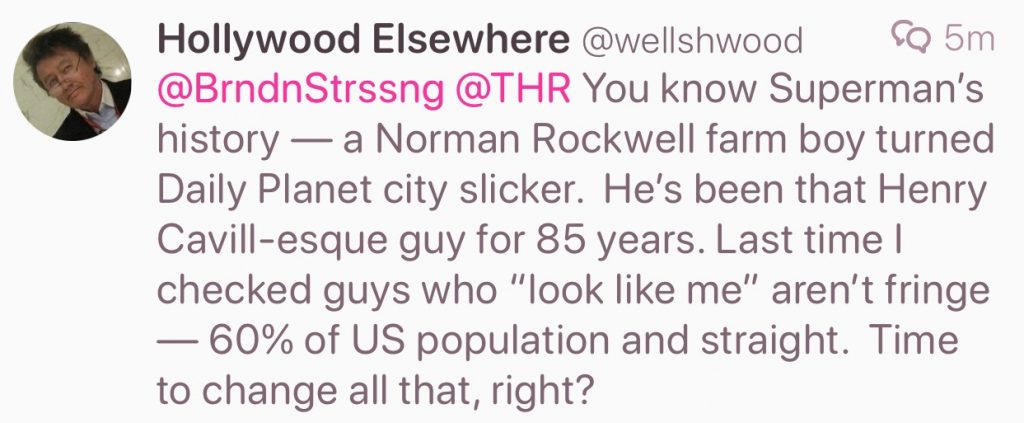
My God, Avatar 2: The Way of Water rerally romps and stomps like nothing I’ve seen in a long while, and the astonishing CG realism (which I couldn’t settle into at first — it took me 10 minutes to find my way into it) is quite the thing, and there’s no beating that last 50- or 60-minute aquatic pitched-battle, breaching-whale, pulse-rifle-burst, arrow-piercing “woo-woo!” destructathon.
A family that fiercely fights together loves all the more…The Poseidon Adventure meets a return-to-Titanic sinkathon + The Abyss drowning trauma + weeping death scene + the wildest, craziest, most vigorously sustained battle lollapalooza ever…worth the price and then some…pays off like a motherfucker.
James Cameron is a drop-dead brilliant action director…let no one ever challenge that statement.
And I’m now determined to practice my Navi cat howl-Māori battle cry.
But so much of Avatar 2 is padded all to hell & is too fucking long, man…it could’ve easily, EASILY been 45 minutes shorter. The narrative pretty much stops in the middle section and becomes a bloated, ultra-costly real-estate video + a tricks-of-under-the-sea survival instructional + Club Med acqua-blue travelogue for glorious Pandora Shores.
The tech is marvelous and bracingly real & every last dollar seems to be on the screen. But there’s something oddly oppressive and even un-entertaining at times about being vigorously assaulted & smothered by so much CG dough…truckloads & truckloads of cash spent by the ultimate wizardly maestro of wildly expensive holy shit superfuck blockbusters. The film is a titanic grand-slam CG toy factory spendathon…whew!
I like the “family is a fortress” theme but my God, I was exhausted when it ended. I’m not altogether sure I want to see it a second time. Variety’s Owen Gleiberman was right when he called it thin. Pic seems to take as much as it gives.
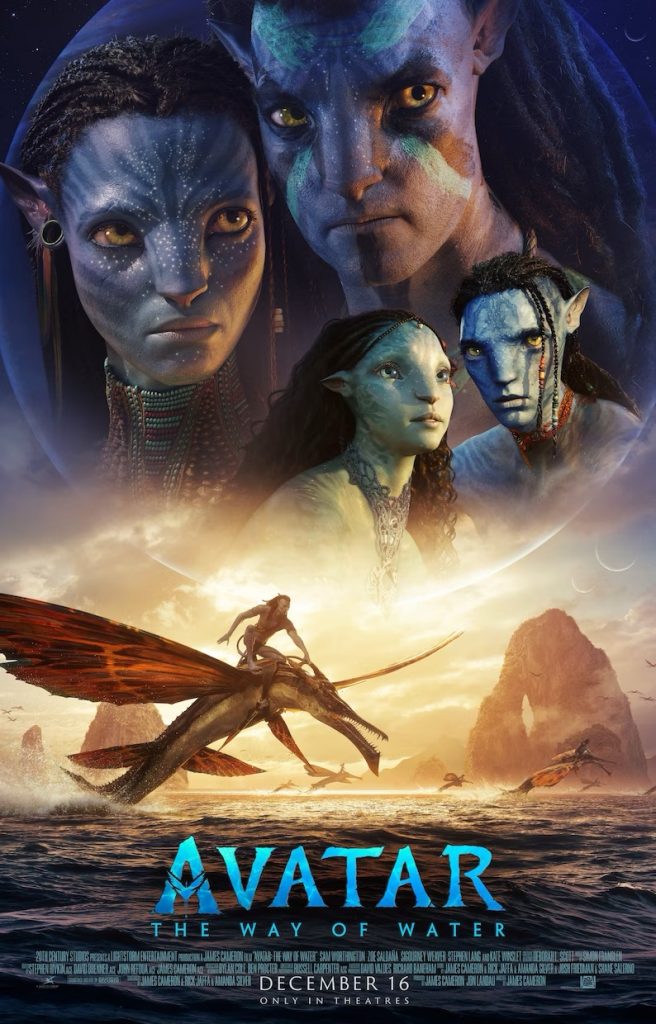
Only in New York City can you negotiate the price of a large Good & Plenty. “$3.50,” the newsstand guy said. “They charged me $3.00 last week!…right here!”, I indignantly replied. Newsstand guy: “S’allright.” HE: “What?” Newsstand guy: “Three is good.”
